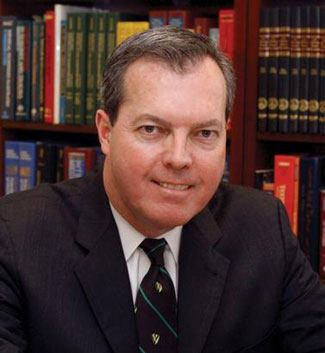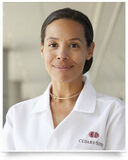Surgeon Q&A: Taking Asymmetric Information Out of the Surgical Process with Dr. John Byrne
By Adam Pick on August 22, 2013
It is very common for patients to be confused when a doctor says to you, “I am sorry. The valve is in bad shape. I think it is time for surgery.”
In that moment… It is likely the doctor is pointing at an ultrasound you can not interpret. In that moment… You may be processing new words, like stenosis, that you have never heard before. In that moment… You may not know the difference between a valve repair or a valve replacement. You may not know the difference between an annuloplasty ring or a pig valve.

Dr. John Byrne
I was recently talking about this moment with Dr. John Byrne, the chief of the Division of Cardiac Surgery at Brigham & Women’s Hospital in Boston.
During our chat, Doctor Byrne had some really interesting thoughts about patient experiences and emotions – from diagnosis to recovery. So, to help current and future patients, I asked Dr. Byrne if we could transform our conversation into an interview.
Interview Highlights With Dr. John Byrne
Adam Pick: Thanks so much for agreeing to turn our phone call into an interview!
Dr. John Byrne: Thank you Adam. This is an important topic for patients, their families and their friends.
Adam Pick: We were just talking about how patients progress through the surgical process. Often times, patients can be very confused and under-educated.
Dr. Byrne: That is correct. Heart surgery is typically a once in a lifetime experience for patients. There are very few things in all of life that one does just once. Think about it. What else other than major surgery does one do just once in a lifetime? As a result, most patients are not familiar with the words we [doctors] use, the tests we administer, or the names of valvular disorders, like regurgitation.
Some patients have never had surgery before. Some patients have never been under general anesthetic before. Some patients have never slept in a hospital before. To your point, this can be very confusing time for patients, their family members and their friends.
Adam Pick: We were just talking about the importance of minimizing the information asymmetry before, during and after heart valve surgery. Can you explain what you meant by that?
Dr. Byrne: Unless the patient has access to someone who knows a lot about heart surgery, there is obviously a large gap in information between the patient and cardiologist and surgeon. This is probably true for many aspects of life, such as complex business dealings, legal and tax matters, but the consequences in heart surgery are much greater. Our job is to bridge that information gap.
Adam Pick: Considering all that you know about heart valve surgery, what do you feel are the most important steps in the surgical process that patients should research — to reduce the information asymmetry?
Dr. Byrne: First, get a good general cardiologist who you trust, who will advocate for the best solution and refer you, if needed, to the right surgeon for your condition. Second, bring a family member who takes notes during the consultation. Prepare questions prior to the interview. I tell my patients that one of the most valuable assets any patient has is a family member who is paying attention. Because the patient is often anxious and not focused like a family member can be. Also, utilized the Internet, but be cautious because the information is probably not peer reviewed. And finally, utilized your social network to find friends and family who may have experience with a similar problem.
Adam Pick: I understand that your mother had aortic valve surgery.
Dr. Byrne: Yes, I referred my own mother for aortic valve replacement. She had critical Aortic stenosis and I had one of my colleagues do her surgery. There was very little information asymmetry in her case.
Adam Pick: How did she do?
Dr. Byrne: She did very well. We had a great team caring for her.
Adam Pick: Did you learn anything new about the surgical process – from the patient’s perspective – during your mom’s experience? If so, what did you learn?
Dr. Byrne: Yes, the information asymmetry we discussed. I could not always be with my mom and other family members during the hospital stay. So, when I did arrive, I discovered the information asymmetry problem.
Adam Pick: What is your number one piece of advice for patients needing valvular therapy?
Dr. Byrne: Get a good general cardiologist who you trust who will refer you, if needed, to the right surgeon.
Adam Pick: Thanks so much for taking the time to talk with me about this topic. I know your ideas will help many patients in our community.
Dr. Byrne: My pleasure.
Many, many thanks to Dr. Byrne for sharing his clinical and personal perspectives about information asymmetry with our patient and caregiver community.
Keep on tickin!
Adam
|
Bob Lewis says on August 22nd, 2013 at 9:41 pm |
|
Good sound advice. The right cardiologist is key |
 |
|
Don Hull says on August 23rd, 2013 at 7:30 am |
|
When I faced heart surgery, I asked a lot of questions and read all I could so I would have a better understanding of the terms the cardiologist and the surgeon used. I think it helped. By the way, Dr. Byrne was my surgeon! I feel I owe my life to him because I did have some complications. Thank you, Adam, and thank you Dr. Byrne. |
 |
|
Russ Cooper says on August 24th, 2013 at 6:26 pm |
|
I am preparing for aortic valve replacement. Will see surgeon next week for second opinion. Maybe it’s third opinion as I have learned so much from Adam Pick and his book. Thank you , Adam, for leading me into and through this experience. |
 |
|
John Singh says on December 18th, 2014 at 1:50 am |
|
I have had two open heart surgery to replace or patch a leaking aortic valve, but both were unsuccessful, now I am faced with another surgery because of infection in the valve,now I am very confused because I do not understand the terminology of the doctors, I understand that there are two possibilities,one in which they go through the groin and the other where they open one’s chest.Please shed some light on these procedures. |
 |











